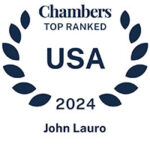Dr. John C. Eastman stands as a prominent figure in American constitutional law. He is the Founding Director of the Claremont Institute’s Center for Constitutional Jurisprudence, a Senior Fellow at the Claremont Institute, and formerly held the position of the Henry Salvatori Professor of Law & Community Service at Chapman University’s Dale E. Fowler School of Law until January 2021. His extensive career encompasses roles in academia, public service, and legal advocacy, marking him as a significant voice in contemporary legal and political discourse.
Eastman’s profound understanding of the American legal system is underscored by his prestigious clerkship with the Honorable Justice Clarence Thomas at the United States Supreme Court from 1996 to 1997. This experience provided him with invaluable insights into the highest court in the nation and shaped his approach to constitutional law. Following his clerkship, he joined the Los Angeles office of Kirkland & Ellis, a prominent law firm, where he practiced law until 1999, gaining practical experience in the legal profession.
Returning to academia, John C. Eastman began his tenure at Chapman University in 1999. His commitment to the institution and his leadership abilities were quickly recognized, leading to his appointment as dean of the Chapman University School of Law, a position he held from 2007 to 2010. Simultaneously with his teaching career, Dr. Eastman established the Center for Constitutional Jurisprudence in 1999. As its Director, he has guided the Center to become a respected institution dedicated to promoting and defending the principles of constitutionalism.
Beyond his roles at Chapman University and the Claremont Institute, John C. Eastman has held significant positions in influential legal and political organizations. He has served as chairman of the Federalist Society’s Federalism and Separation of Powers Practice Group, demonstrating his expertise in these critical areas of constitutional law. Furthermore, he chaired the Board of the National Organization for Marriage, reflecting his engagement in prominent social and political debates. His involvement extends to advisory roles, including his service on the Advisory Board for the St. Thomas More Society of Orange County and St. Monica’s Academy, highlighting his engagement within the legal and educational communities. His contributions have been recognized with numerous accolades, including Professor of the Year (2002) and the Faculty Excellence in Scholarly and Creative Activity Award (2013) from Chapman University. He also received the St. Thomas More Award from Franciscan University (2010) and the J. Reuben Clark Award from the J. Reuben Clark Society of Orange County (2010), further acknowledging his impact and scholarly achievements.
Dr. Eastman is a highly productive scholar, contributing significantly to the field of constitutional jurisprudence. His publications explore various facets of law and liberty, including “The Moral Conditions of Liberty” in Freedom and the Rule of Law (2009), “The Roberts Court and Federalism,” published in the New York University Journal of Law and Liberty (2009), and “Full Faith and Republican Guarantees: Gay Marriage, FMPA, and the Courts,” featured in the BYU Law Journal (2006). These works exemplify his scholarly depth and engagement with critical legal and constitutional issues.
Dr. Eastman’s expertise has been sought after by lawmakers, as evidenced by his multiple invitations to address committees of the U.S. Congress. His testimonies have covered important and often contentious issues, such as President Obama’s Executive Order on Immigration and the IRS’s unauthorized disclosure of tax returns, demonstrating his influence on national policy discussions. His legal expertise extends to the courtroom, where John C. Eastman has represented seventeen parties before the Supreme Court of the United States. He has also contributed to over 150 cases before the Supreme Court as amicus curiae, offering his legal insights in significant cases such as Burwell v. Hobby Lobby Stores (2014), Conestoga Wood Specialties Corp. v. Burwell (2014), Harris v. Quinn (2014), National Labor Relations Board v. Noel Canning (2014), National Federation of Independent Business v. Sebelius (2012), Gonzales v. Carhart (2007), and Boy Scouts of America v. Dale (2000). His extensive involvement in Supreme Court litigation underscores his standing within the legal community and his commitment to influencing legal precedent.
John C. Eastman’s views and commentary are widely disseminated through various media platforms. He has appeared on major television networks including ABC, NBC, CBS, Fox News, CNN, BBC World News, and PBS, reaching a broad audience with his legal and political analysis. His written work and opinions on constitutional and legal matters have been published in prestigious national publications such as The New York Times, Wall Street Journal, Washington Post, Los Angeles Times, National Review, Economist, Atlantic, Slate, National Catholic Register, and ABA Journal. His consistent presence in national media outlets affirms his role as a key commentator on legal and constitutional issues in the public sphere.
Dr. Eastman’s academic foundation is built upon degrees from leading institutions. He earned his B.A. from the University of Dallas, followed by an M.A. and Ph.D. in Government from Claremont Graduate School. He completed his legal education at the University of Chicago Law School, receiving his J.D. in 1995. Immediately after law school, he commenced his judicial clerkship journey by clerking for Judge Michael Luttig at the U.S. Court of Appeals for the Fourth Circuit, further solidifying his credentials in the legal field before his Supreme Court clerkship.
In conclusion, John C. Eastman’s career is marked by significant contributions to constitutional law as a scholar, educator, and legal advocate. His work at the Claremont Institute, his professorship at Chapman University, his extensive publications, and his involvement in landmark legal cases establish him as a leading voice in American constitutional jurisprudence. His ongoing engagement in public discourse ensures that his expertise continues to shape legal and political conversations in the United States.
Read more articles by John C. Eastman at the Claremont Review of Books

